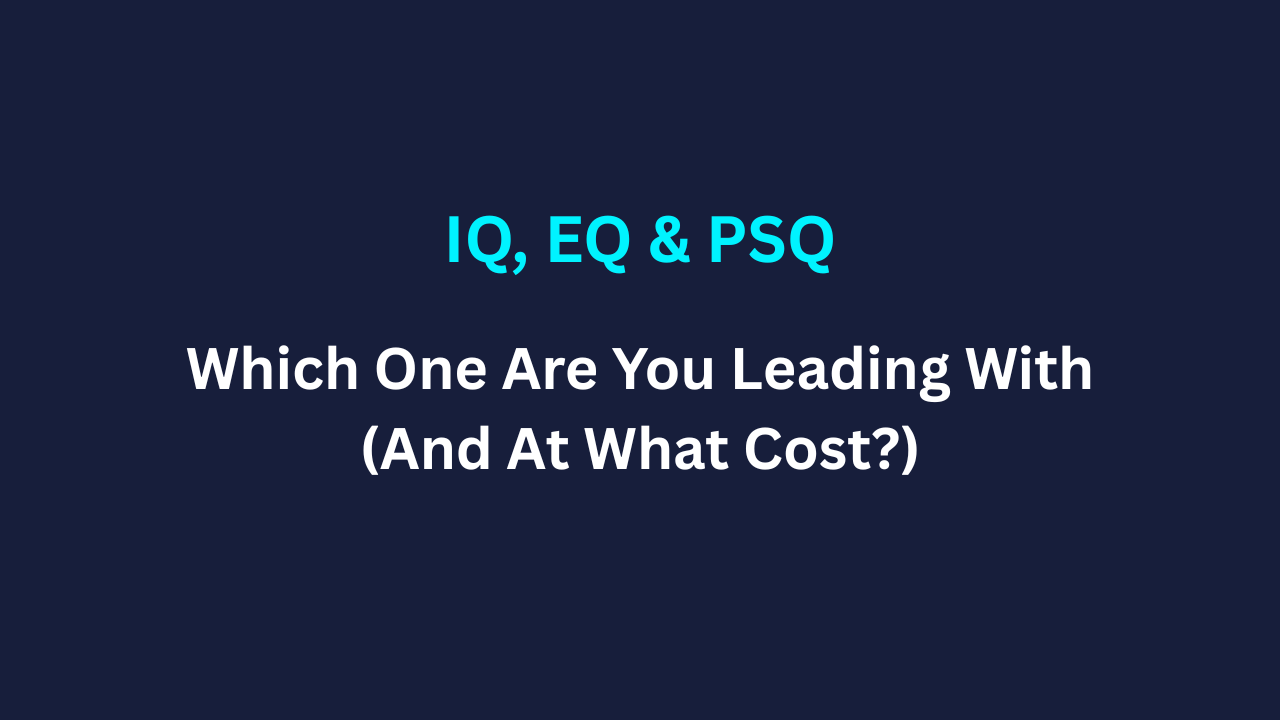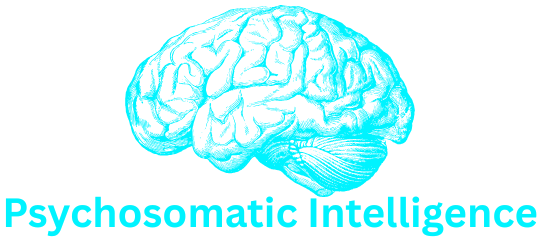
IQ, EQ, or PSQ — Which One Are You Leading With (And At What Cost?)
For decades, IQ — your intelligence quotient — was seen as the ultimate predictor of success. Then came EQ — emotional intelligence — highlighting the critical role of empathy, self-awareness, and emotional regulation.
But today, we know both are incomplete. PSQ — Psychosomatic Quotient — captures a deeper, more integrated intelligence: your ability to align mind, body, and nervous system for coherent, sustainable action.
Each form of intelligence — IQ, EQ, and PSQ — brings strengths, but also limitations when developed in isolation. In this post, we’ll explore how each operates, what happens when you over-rely on one, and how integrating PSQ unlocks your full potential.
IQ — Cognitive Intelligence: The Mind's Sharpness
IQ reflects your cognitive abilities: reasoning, problem-solving, logic, and analytical thinking. High IQ individuals excel at strategy, technical tasks, and intellectual pursuits.
Strengths:
-
Sharp problem-solving
-
Strategic planning
-
Analytical thinking
Limitations:
-
Tendency to overthink and detach from emotions
-
Poor emotional attunement and social connection
-
Stress and burnout from trying to out-think problems without addressing emotions or physiology
When IQ leads without balance: You may succeed intellectually but feel disconnected, anxious, or chronically stressed.
EQ — Emotional Intelligence: The Mind-Heart Connection
EQ, popularized by Daniel Goleman, is your ability to understand, express, and manage emotions — both your own and others’.
Strengths:
-
Empathy and social attunement
-
Emotional regulation
-
Conflict resolution and leadership
Limitations:
-
Emotional awareness without somatic regulation can lead to being emotionally aware but physically depleted
-
Compassion fatigue or emotional overwhelm
-
Over-focusing on relational harmony at the cost of personal boundaries or drive
When EQ leads without PSQ: You may navigate relationships well but feel emotionally drained, lacking personal drive or vitality.
PSQ — Psychosomatic Quotient: The Integrated Intelligence
PSQ is your ability to align mind, emotions, and body — creating psychosomatic coherence where thoughts, feelings, and actions harmonize.
Strengths:
-
Nervous system regulation to sustain energy and focus
-
Embodied emotional intelligence — feeling emotions without being hijacked by them
-
Alignment between conscious goals, subconscious beliefs, and somatic safety
-
Adaptability under pressure
Limitations:
-
Like any skill, PSQ must be trained consistently; neglect can lead to dysregulation despite high IQ or EQ.
With PSQ, you don’t just think smarter or feel deeper — you operate in flow, where your system is energized, grounded, and directed.
The Hidden Costs of Imbalance
Relying exclusively on IQ, EQ, or even physical intelligence without PSQ integration leads to:
-
Chronic stress or burnout (IQ-dominant)
-
Emotional overwhelm or relational enmeshment (EQ-dominant)
-
Physical depletion without strategic clarity (body-dominant)
Only by developing PSQ do you create the full-spectrum intelligence needed for modern challenges.
How to Develop PSQ
-
Breathwork & Nervous System Regulation to create physiological safety.
-
Subconscious Reprogramming to align beliefs with goals.
-
Somatic Practices like movement, shaking, and heart coherence.
-
The NeuroGoal Sequence to embed goals into your entire system.
This integration allows IQ and EQ to operate at their fullest capacity — powered by a resilient, coherent body-mind system.
Conclusion: Lead with Coherence, Not Just Intelligence
You are more than your IQ or EQ. PSQ is the intelligence that integrates them all, enabling you to lead, perform, and thrive without sacrificing well-being.
If you’re ready to elevate your IQ and EQ by mastering your PSQ, let’s work together.

